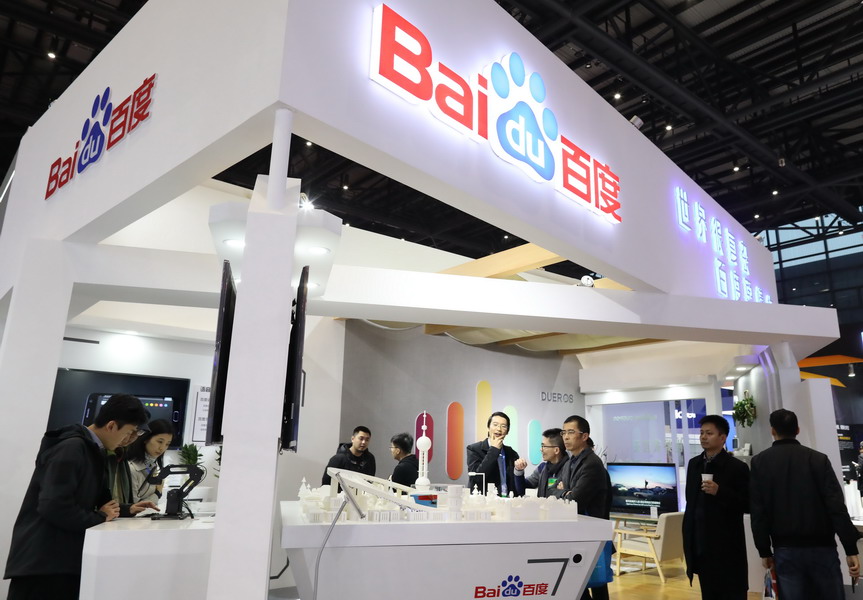Baidu earnings beat analyst forecasts on strong online sales
By Fan Feifei | China Daily | Updated: 2018-04-28 09:35

Chinese internet search giant Baidu Inc's quarterly financial earnings topped analysts' forecasts, owing to the growth from its online advertising business.
Baidu's total revenue was 20.9 billion yuan ($3.3 billion) in the first quarter ended March 31, up 31 percent year-on-year, and its mobile revenue represented 78 percent of total net revenue, compared with 70 percent for the first quarter of 2017.
"We had a strong start in 2018, with our core business exhibiting robust growth, and we continue to execute on our strategy to strengthen Baidu's mobile foundation and lead in artificial intelligence," said Robin Li, chairman and CEO of Baidu.
"I would also like to congratulate iQiyi.com on a successful initial public offering and hope to incubate more businesses with large market opportunities and strong synergies with Baidu," Li added.
iQiyi, a Beijing-based online streaming video service provider and also Baidu's online entertainment subsidiary, raised $2.27 billion through its IPO on the Nasdaq stock market in the United States last month.
Yu Zhengjun, chief financial officer of Baidu said: "We have never been more focused than we have in the past year, by scaling down or exiting noncore businesses and doubling down on investments in AI-powered businesses to generate significant long-term returns for our shareholders."
Net income attributable to Baidu was 6.7 billion yuan, increasing 277 percent year-on-year. It expects second-quarter revenue of between 24.9 billion yuan and 26.2 billion yuan, representing a 26 percent to 33 percent increase year-on-year.
The company removed 20.2 billion malicious webpages last year, according to its 2017 information security report.
The positive results also reflect lower-than-expected research and development expenses, which have skyrocketed since Baidu's pivot to AI due to steep costs hiring top talent.
Baidu has sold or withdrawn from a number of businesses to focus on autonomous driving, AI and its news feed product, regaining momentum and investor confidence.
Recently, the company received the first batch of licenses to conduct open road tests for autonomous vehicles in Beijing and Chongqing municipalities and Fujian province.
It also released Apollo 2.5, which supports high-speed road conditions, improves cost efficiency, and enhances developer support. There are 100 partners taking part in its open autonomous driving platform Apollo.
























